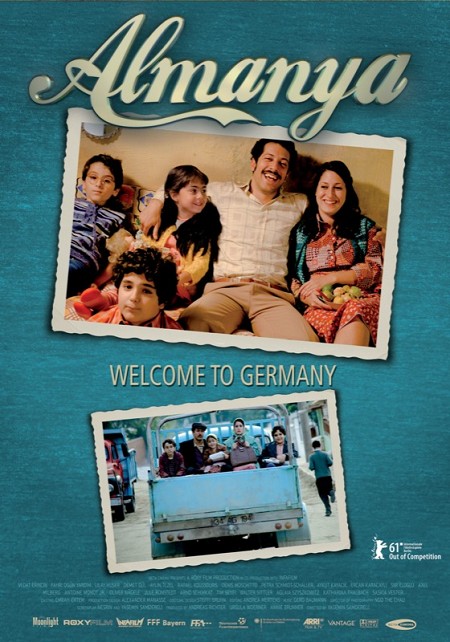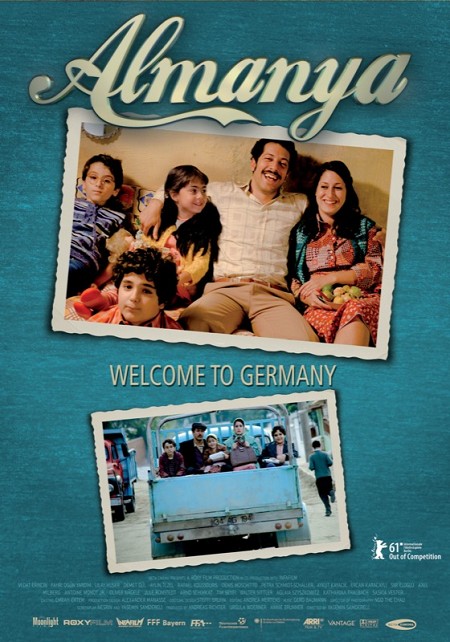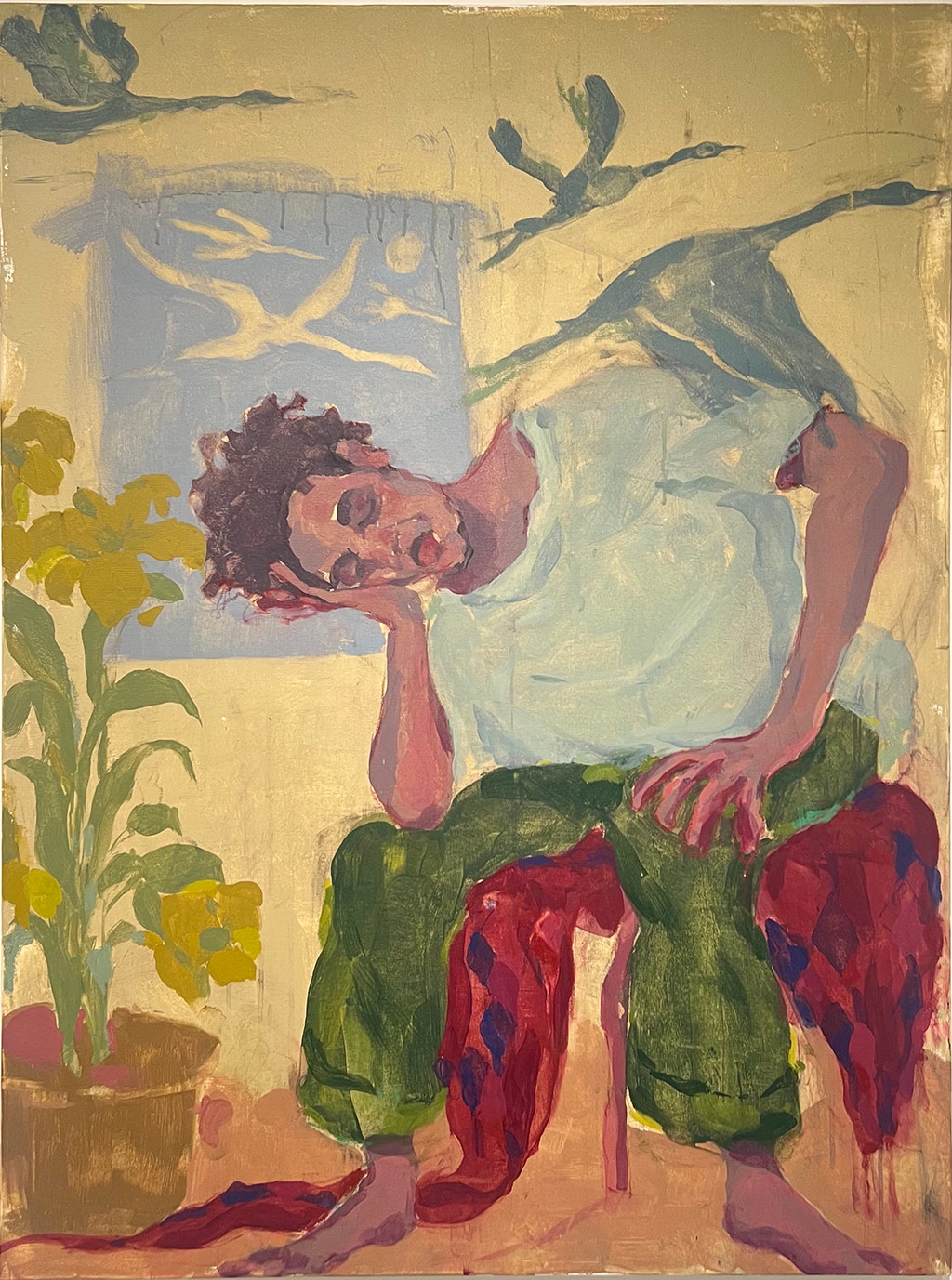 During the 1960s, a flood of immigration brought thousands of Turks from their homeland to Germany, with promises of well-paying career opportunities. Without cultural context, one might find such a German and Turkish association to be bizarre — but when given historical context, which the heartwarming and humorous Almanya — Willkommen in Deutschland provides, one begins to understand the fascinating culture surrounding that population, which has now spent decades in a foreign country.
During the 1960s, a flood of immigration brought thousands of Turks from their homeland to Germany, with promises of well-paying career opportunities. Without cultural context, one might find such a German and Turkish association to be bizarre — but when given historical context, which the heartwarming and humorous Almanya — Willkommen in Deutschland provides, one begins to understand the fascinating culture surrounding that population, which has now spent decades in a foreign country.
Almanya documents the story of a Turkish family, headed by a grandpa who has seen his children grow to father more children in Germany. Each member of the large family seems to hold a different opinion about his or her Turkish-German upbringing and personal degree of assimilation — so when grandpa declares over dinner that he has purchased a home in Turkey and would like to take a family trip for everyone to see it, he is met with much resistance. Even his wife of many years is surprised and disappointed by the news. To this, he sternly questions, “Have I ever asked anything of you?” and the family falls silent, only to eventually acquiesce to grandpa’s will. From there, the film flies through timelines and decades, recapping the family’s immigration from Turkey to Germany with all of the pomp and romanticism that all who dream of a new opportunities no doubt have. But while the film humorously spotlights the excitement of grandpa’s past, it also expresses, on the behalf of both the grandparents and their Turkish-born children, a sense of nostalgia for a motherland that lies as a gateway between Europe and Asia.
ALMANYA FILM REVIEW CONTINUES BELOW
Historical Sidebar: Turks In Germany
Immigration To Turkey
The large-scale of immigration of Turkish workers from the beginning of the 1960s was on the one hand, due to the high population growth and mass unemployment within Turkey, and on the other, due to the demand for labour in north-west Europe. West Germany, like other Western European nations, began to experience a labour shortage by the mid-1950s. Recruitment of workers from Mediterranean countries was one easy solution to this problem. In 1961, the construction of the Berlin Wall exacerbated West Germany’s labour crisis by restricting the flow of immigrants from East Germany. Turkey at the same time experienced unemployment. The Turkish government asked Germany to recruit Turkish guest workers. Theodor Blank, Secretary of State for Employment, was opposed to such agreements, believing that the cultural gap between Germany and Turkey would be too large. He also argued that Germany needed no additional foreign laborers, because there were enough unemployed people living in the poorer regions of Germany who could take these jobs. The United States however, put some political pressure on Germany, as it wanted to stabilize Turkey. The German Department of Foreign Affairs carried on negotiations after this and in 1961 an agreement was reached. Pressure from German employers in 1962 and 1963 played a key role in ending the two-year limit on the period for which Turkish workers were permitted to stay in West Germany.
In 1961, a total of 7,116 Turks migrated to Germany as guest workers. The recruitment treaty in 1961 made Germany the prime host country for Turkish guest workers and by 1973, some 80% of the Turks in Western Europe lived in Germany, and although this share had decreased to 70% by 1990, Germany remained by far the most important country of settlement for Turkish immigrants.
The first half of Almanya is mostly fun and games, but the film’s cultural relevance truly becomes apparent once the family goes to Turkey. There, family chemistries are examined and mixed-culture dynamics become fertile breeding grounds for both profound ideas and great misunderstandings. The film oscillates back and forth between Turkish and German; and with seemingly no rhyme or reason guiding their language choices, the speech becomes reminiscent of dreams — or even more abstractly, the intangible ambiguities where cultures collide. When it is not being exceptionally humorous, Almanya stirs up serious sentiments by raising questions about family, dedication to family, and cultural belonging on an individual as well as mass scale. One is left musing over what culture really is — whether it is steeped in language or tradition, or if it is a sense of oneself.
Glimpses into the lives of family members serve as clues in unraveling this mystery, which has answers that vary with each and every person. Grandma’s simple modesty and child-like giddiness at finally receiving her German passport becomes adorable; grandpa’s severity proves itself to be the necessary strong arm in the family. One feels deeply for the children who departed from Turkey at a young age only to remain eternally confused about their place between two countries, and for the second-generation Turkish-German child whose city of origin, Anatolia, is so foreign to Germans that it is excluded from his classroom’s all-Europe map.
Despite being a seemingly unlikely cultural comedy-drama, Almanya proves time and time again that it is a film that breaks new ground. Whether poking fun at the sausage and potato-eating ways of Germans or hilariously showing the lack of modern sanitation facilities in Almanya, its jokes are simultaneously closed-minded and very sympathetic — a duality wherein anyone with even a bit of context about Islam or the differences between German and Turkish cultures will agree: Almaya is impartial in its teasing. It is a film that boldly bridges cultural gaps while celebrating ethnic eccentricities, and it succeeds in a way that only a film crew respectful and knowledgeable about both German and Turkish culture can.
Ω







[…] http://www.redefinemag.com/2012/almanya-welcome-to-germany-willkommen-in-deutschland-2011-film-revie… […]